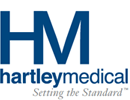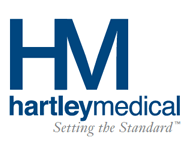 Not many of us actually know the Terms and Conditions: those novel-length agreements made between two parties before entering into a business relationship. The truth is that simple commerce is long gone; handshake deals and cocktail-napkin contracts are things of the past. Today’s business world has an endless number of suppliers across an endless number of industries. This translates into a complex web of business contacts, order forms, invoices, pricing schemes, payment schedules and options, and the list goes on. Believing that mistakes and subtle changes don’t happen is a noble, albeit overly optimistic thought, but the facts of the matter are these: mistakes do happen, changes are made, and the need for careful and continuous scrutiny of your billing terms and conditions, as well as pricing, is paramount.
Not many of us actually know the Terms and Conditions: those novel-length agreements made between two parties before entering into a business relationship. The truth is that simple commerce is long gone; handshake deals and cocktail-napkin contracts are things of the past. Today’s business world has an endless number of suppliers across an endless number of industries. This translates into a complex web of business contacts, order forms, invoices, pricing schemes, payment schedules and options, and the list goes on. Believing that mistakes and subtle changes don’t happen is a noble, albeit overly optimistic thought, but the facts of the matter are these: mistakes do happen, changes are made, and the need for careful and continuous scrutiny of your billing terms and conditions, as well as pricing, is paramount.
Knowing the price of goods and services is the first step toward performing due diligence on costs. Keeping a watchful eye on those costs, however, is a critical element that is easily, and often, overlooked. Recently, we met with a doctor whose cost of goods had changed significantly and unexpectedly. The tale of doctors realizing they’ve paid too much is not rare, but it is avoidable. Take steps to identify discrepancies from one invoice to the next and mitigate the effects that paying too much has on the bottom line. Obtain an itemized invoice from time to time to make identifying individual costs easier and to see expenses as they are. Often, practices settle for the convenience and more aesthetically pleasing appearance of a summary style invoice. These invoices lump together all expenses, providing only the total price of purchases made during the given timeframe, and inhibiting a practice’s ability to scrutinize each individual good and/or service. Another step is to make a habit of examining invoices regularly. Doing so will allow you to discover and address discrepancies sooner, and save you a tremendous amount of frustration, as this practice creates shorter stacks of invoices to sift through.
To be fair, mistakes do happen. Because the human element is such a vital part of business, it’s natural that errors appear from time to time. This makes knowing your supplier’s auditing policies all the more crucial. Does your supplier perform its own auditing? If so, it’s more likely that mistakes will be discovered and rectified. Inquire into this when entering into a business agreement with your suppliers. Find out how they handle overcharges, as well as charging too little. Know your supplier’s philosophy on price changes. Do they alert their clients ahead of time, or are their prices “subject to change without notice?” Adjusting prices is a sometimes necessary part of operating a business successfully; find and work with providers who understand this and feel comfortable notifying you of any changes that can affect your practice and your bottom line. Finding out early is always better than finding out too late or, even worse, not at all.
Even the best business can get itself into trouble if its billing practices aren’t up to par. Making sure your accounts payable and receivable are running efficiently allows you to focus on your patients and to create the experience they look for, expect, and deserve from their physicians. The procedures described above are relatively simple to implement and require very little additional equipment, if any at all. What they will do for your practice, however, is important to, and necessary for, its ability to continue operating profitably. These are not the “good ol’ days” of business anymore. There is wisdom in implementing a “trust but verify” attitude about your terms and conditions.
For more information, visit Hartley Medical’s Knowledge Center by clicking here.


Leave A Comment